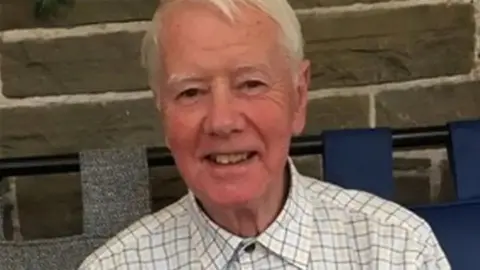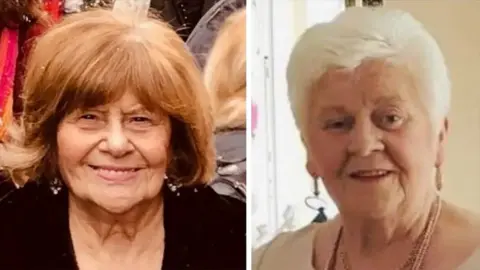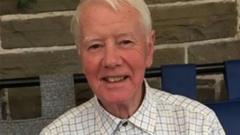Eyesight rules for motorists unsafe, says coroner

 Police handout
Police handout
An inquest into the deaths of four people killed by drivers with failing eyesight has found enforcement of visual legal standards for motorists is “ineffective and unsafe”.
HM Senior Coroner for Lancashire Dr James Adeley has sent a report to Transport Secretary Heidi Alexander to say action should be taken to prevent future deaths.
He labelled the licensing system as the “laxest in Europe” as he pointed out the UK was one of only three countries to rely upon self-reporting of visual conditions affecting the ability to drive.
Dr Adeley said it was also concerning that the UK was the only European country to issue licences without any visual checks for a continuous period up to the age of 70.

 Family handouts
Family handouts
He made the remarks at the inquests of Marie Cunningham, 79, Grace Foulds, 85, Peter Westwell, 80, and Anne Ferguson, 75, held earlier at Preston Coroner’s Court.
Friends Mrs Cunningham and Mrs Foulds were struck by Glyn Jones, 68, in his Audi A3 as they crossed the road in Southport, Merseyside, on 30 November 2021.
Jones was aware for some years before the collision that his sight was insufficient to meet the minimum requirement to drive a car but failed to declare it to the Driving and Vehicle Licensing Agency (DVLA).
When he was jailed for seven years and four months, his sentencing hearing was told he could not even see his steering wheel clearly.
Mr Westwell was hit by Neil Pemberton, 81, as he crossed the road in Langho, near Blackburn, on 17 March 2022.
Pemberton, who was jailed for 32 months, had a long history of eye disease and was informed on several occasions by different clinicians that he should not drive, the inquest heard.
He also repeatedly failed to declare his sight deficit on multiple licence applications to the DVLA.
Mrs Ferguson died when she was struck by a van driven by Vernon Law, 72, in Whitworth, Rochdale, on 11 July 2023.
A month before Law was told he had cataracts in both eyes but he lied to an optometrist that he did not drive.
Law, who was jailed for four years, knew he had problems with his eyes for years before the collision but his sight loss could easily have been corrected.
Law also failed to declare his sight issues on multiple licence applications to the DVLA, the inquest at County Hall heard.
‘Selfish people putting others at risk’
Following the inquests, the family of Mrs Cunningham said: “Our mum, and her friend, were killed by the selfish, reckless actions of Glyn Jones.
“His decision to put his own convenience before the law, before ethics, before human lives, cost our family everything.
“This tragedy was not inevitable. It was entirely avoidable.
“And we are left grappling with the painful truth that if this man had acted responsibly our mum would still be with us.”
Terry Wilcox, of Hudgell Solicitors, representing the families of Mrs Cunningham, Mrs Foulds and Mr Westwell, said: “People ignore what they are told when it doesn’t suit their lifestyle, and in reality there is nothing in place to stop selfish people putting others at risk by getting back behind the wheel.
“We presently have a system under which the DVLA relies upon drivers to self-report, hand over their licence and stop driving when they’ve been told by a qualified healthcare professional that their eyesight is not to the required standard.
“This inquest has shown that simply doesn’t happen.”
‘Ineffective, unsafe and unfit’
Dr Adeley said: “The four fatalities shared the same feature that the driver’s sight was well below the standard required to drive a car.
“The current system for ‘ensuring’ drivers meet the visual legal standards is ineffective, unsafe and unfit to meet the needs of society as evidenced by the deaths of Marie Cunningham, Grace Foulds, Anne Ferguson and Peter Westwell where the DVLA continued to provide licences to drivers who had failed to meet the legal sight requirements.”
The Department for Transport said it would consider the coroner’s report once received.
A spokesperson added: “The NHS recommends adults should have their eyes tested every two years and drivers are legally required to inform the DVLA if they have a condition which affects their eyesight.
“We are committed to improving road safety and continue to explore ways to achieve this.”
Listen to the best of BBC Radio Lancashire on BBC Sounds and follow BBC Lancashire on Facebook, X and Instagram and watch BBC North West Tonight on BBC iPlayer.







